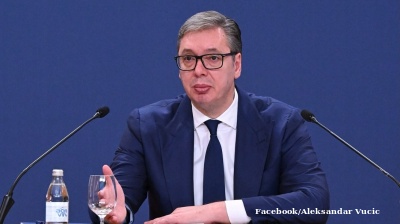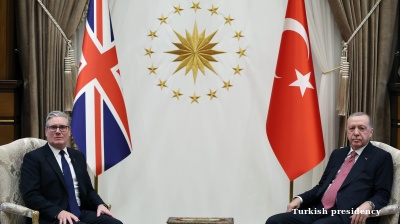Low interest rates for even longer or maybe even forever, and ballooning government balance sheets will shape the post Covid-19 era. But that's not all. The health crisis may have fundamentally altered the structure of our economy.
End of the world as we know it?
While all of the focus right now is on how to solve the health crisis, flatten the curve of infections and tackle the adverse economic impact from the lockdowns, there will be a time after the crisis. A time when normality returns. The question, however, is whether this is the same normality or whether we are currently witnessing the end of the world as we know it.
As discussed in other sections of our Economic Update, there will be an aftermath to the economic emergency measures. Low interest rates for even longer or maybe even forever and ballooning government balance sheets will definitely shape the post Covid-19 era. In the eurozone, heated discussions about the adverse effects of the ECB’s unconventional measures, as well as tensions over debt sustainability and the right macro policy prescription, are likely to return with a vengeance. But there is more. Based on recent experiences during the Covid-19 crisis, more structural changes also look likely. Here are some of those potential changes.
Narrowing the wage gap
For some, getting sick means going on paid leave and retaining access to high quality healthcare services. For others, especially those with part-time contracts, it means either losing their job or having no or limited access to healthcare services. However, it wouldn’t be surprising to see higher wages for healthcare workers, as demand for their services peaks and supply shrinks, not least because of lower cross-country mobility as a result of lockdown measures. The crisis has (at least temporarily) redefined the term systemic-relevant employees. We could also see higher wages for low-wage service workers, and perhaps even larger (unconditional) basic income schemes. Gig economy workers could be hit hard, though. In Italy and Germany, between 2.5 and 5% of the working population gets at least 50% of their income from the sharing economy. The gender pay gap may get worse, as women might be forced to take time off work to look after loved ones.
Social distancing here to stay
Pandemics often come in waves and social distancing is one of the key tools to manage the spread. These measures will remain in full force, even when this immediate outbreak is over. This could potentially have a significant impact on social life, sports and culture but also on the way we work. Just think of working in cubicles and flex desks. Will this still be possible with continued social distancing? Will the increase in people working from home reduce the demand (and prices) for office space? Will social distancing and the fear of future pandemics reverse the entire trend of the sharing economy? Will there be a renaissance of private cars? More broadly, will this be a turning point for urbanisation – at least in the developed world? These are just some of the many questions that remain to be answered in the coming weeks and months.
De-globalisation
We don’t know if the coronavirus [COVID-19] pandemic means the end of globalisation yet, but it is highly unlikely that we will return to business as usual. Global trade will suffer the most and perhaps even make a comeback at some point. However, since countries have been exposed to the fragilities of global supply chains (e.g. medical equipment hoarding), they’ll have to learn how to cope with long periods of economic self-isolation, especially as pandemics often come in waves. Also, around the world, there have been several rather nationalistic reflexes in dealing with the crisis; be it export bans on face masks, attempts to buy foreign companies which are trying to find a vaccine, or simply considering stopping foreign companies on domestic soil from exporting crucial materials.
Next steps for digitalisation
As working from home accelerates, there will be higher demand for internet bandwidth, but also higher concerns around cybersecurity, which ultimately could push authorities to boost the speed and resilience of digital infrastructure. Platforms for all kinds of experts as well as platforms to provide social services should receive more interest as a result of the crisis. Moreover, we wouldn’t be surprised if consumers were to make more use of contactless payments and reduce their use of cash going forward, perhaps even in those countries where cash is king, like the US and Europe.
-
This note first appeared on ING’s “Think” portal here.
Content Disclaimer: This publication has been prepared by ING solely for information purposes irrespective of a particular user's means, financial situation or investment objectives. The information does not constitute investment recommendation, and nor is it investment, legal or tax advice or an offer or solicitation to purchase or sell any financial instrument. Read more
Opinion

Armenia’s painful reorientation toward the West
Yerevan’s drive to break free from its dependency on Moscow is generating profound internal political turbulence and exposing it to new external risks, says a report by the Central Asia‑Caucasus Institute & Silk Road Studies Program.

COMMENT: Europe’s “fake it till you make it” war approach cannot hold off Russia’s trillion dollar war machine
In their speeches on the war in Ukraine, European leaders appear like a video clip looped on repeat. Standing before the cameras they declare new packages of support for Kyiv and threaten new measures to pressure Russia as if it was still 2022.

A year after the Novi Sad disaster, Belgrade faces one crisis after another
Serbia’s government is grappling with a convergence of crises which threaten to erode President Aleksandar Vucic’s once-dominant position.

Don’t be fooled, Northern Cyprus’ new president is no opponent of Erdogan, says academic
Turkey’s powers-that-be said to have anticipated that Tufan Erhurman will pose no major threat.




